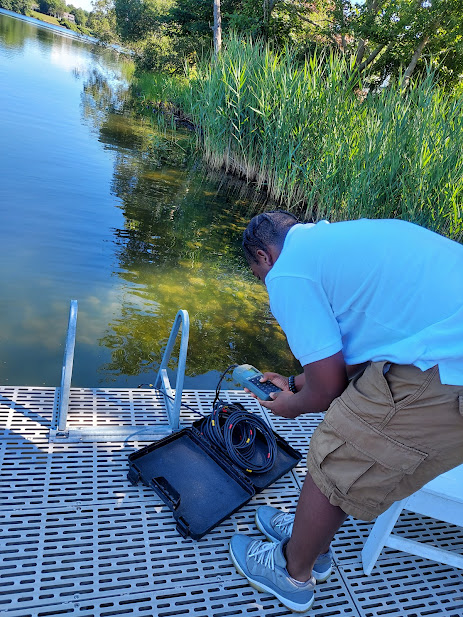Siders Pond Data Day.2

Siders Pond Day 2 We went out on to the pond for a second day on July 12, 2022. We calibrated in the lab so we were good to just head out on the water. It was a lot windier this day, but we were still able to get onto the pond in relatively the same area as the first day. We again collected data down to the floor of the pond which was about 11 meters deep. It was interesting to see what type of data would be produced on this day and how it would differ from day one because of the different elements that may be at play. *Data for this day is orange* *Blue is last trip* The data we found this time out was fairly similar with a couple of changes. One of the changes I observed was that the dissolved oxygen content in the water was different the second time than the first time. Though both times the oxygen stayed about constant under 4 meters on this day the oxygen was higher than the first day. We are a bit skeptical of the accuracy of the dissolved oxygen recorded on the second ...
